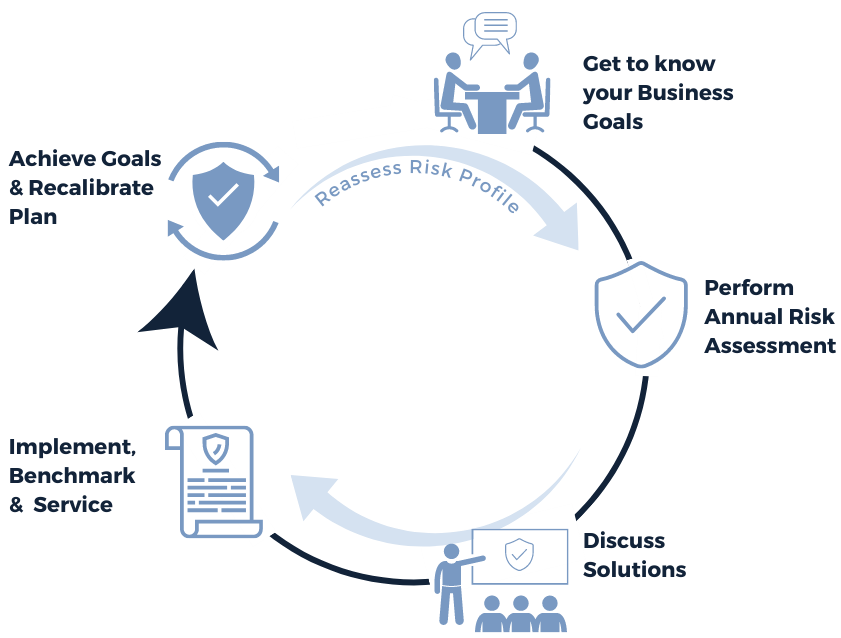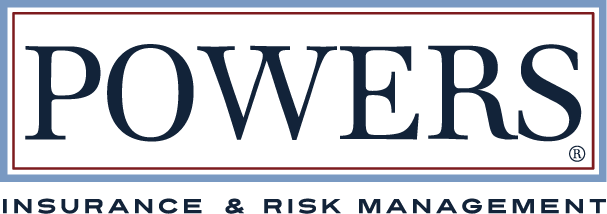In early 2023, a business-owned pickup truck – suspected to be stolen from a local landscaping company – hit several parked cars in south St. Louis. The crash caused significant damage to the vehicles and also caused a fire outbreak.
Commercial auto insurance protects your business if your vehicle is stolen, damaged, or involved in an accident. Who needs commercial auto and what does it cover?
In this guide, we’ll explore:
- What is commercial auto insurance?
- What does commercial auto cover?
- Who needs a commercial auto policy?
- How much does commercial auto insurance cost?
- How safety programs impact your auto insurance
- How to get commercial auto coverage
- The commercial auto claim process: What to expect
- Get the commercial auto coverage you need from a partner you trust
What is commercial auto insurance?
Commercial auto insurance, sometimes called business auto insurance, protects your business against financial loss resulting from motor vehicle accidents, damage, or theft of vehicles owned by your business.
What does commercial auto cover?
Your commercial auto policy contains both property and liability coverage. It covers damage or theft of the insured vehicles themselves, as well as liabilities for:
- Property damage
- Bodily injury
- Medical expenses
- Legal expenses
In other words, if an employee is in an accident with a business vehicle, your commercial auto policy may cover the damage to both your vehicle and any other vehicles and parties involved in the accident.
Commercial auto insurance typically covers these damages and liabilities even if they happen during personal use of the vehicle.
What is not covered by commercial auto?
There are a few things typically excluded from commercial auto coverage, including:
- Personal vehicles used for business purposes – these may be covered under some circumstances or you might need an HNOA policy (see below)
- Intentional illegal acts
- Employee injuries covered by workers’ compensation
- Damage to company property covered by property insurance
What is and isn’t covered can vary, so it’s important to be familiar with your specific policy details. At POWERS, we go through a thorough assessment with all clients to ensure the policies they buy fit the risk they face.
Commercial auto vs. personal auto policy
Commercial vehicle insurance coverage is specifically designed to protect businesses and their vehicles. A personal auto insurance policy usually does not cover vehicles used primarily for business purposes.
Commercial auto vs. hired and non-owned auto insurance (HNOA)
Commercial auto and HNOA insurance both protect vehicles used for business purposes. The differences are in which vehicles are covered and the scope of that coverage.
Vehicles covered: Commercial auto covers vehicles owned by your business, while HNOA covers vehicles that are used for business purposes but not owned by your business – for example, employees’ personal vehicles or vehicles that are leased, rented, or borrowed.
Scope of coverage: Commercial auto offers comprehensive coverage for your business’s vehicles and liabilities associated with them. On the other hand, HNOA coverage typically focuses on liability for damages or injuries caused by the insured vehicle.
Commercial auto vs. fleet insurance
Both commercial auto and fleet insurance protects your business’s vehicles. Commercial auto covers individual vehicles, while fleet insurance typically covers a larger number of commercial vehicles owned by a business. Fleet insurance often offers cost savings and streamlined vehicle management tools.
Who needs a commercial auto policy?
Any business that owns vehicles needs a commercial auto policy. This includes business-owned vehicles that transport goods, employees, or clients.
How much does commercial auto insurance cost?
Insurance carriers calculate your commercial auto premium using several factors, such as:
- Nature of the business
- Number and types of vehicles
- Employees’ driving records
- Policy limits and deductibles
- Risk management practices
Because insurance rates can vary, it’s important to work with a risk manager to find the best solution. Businesses with complex risk profiles will find the most value from partnering with an independent insurance agent that will help them proactively manage risk for long-term success.
More on the benefits of integrated risk management. >
How safety programs impact your auto insurance
A strong workplace safety program can reduce your risk of incidents and claims – and therefore, lower your insurance premiums. Insurance companies often offer discounts or incentives to businesses that have safe driver training, vehicle maintenance protocols, and telematics systems in place.
How to get commercial auto coverage
An experienced agent should recommend insurance policies for you based on your business’s unique exposures and risk profile. If your agent hasn’t recommended commercial auto but you think it could be a good fit, ask about it.
Your agent will find the best options based on your risk assessment and present them to you. At POWERS, we cover the following questions when presenting clients with coverage options:
- Does the pricing match the client’s expectations?
- Does the policy have the appropriate limits, deductibles, and coverage enhancement endorsements?
- What are the carrier’s financial stability, reputation, and claims process like?
- What added value can the carrier offer the client – e.g. fleet management tools and discounts for using telematics?
At POWERS, we work with some of the best business insurance carriers in the U.S. There’s no need to spend hours researching providers – we’ll make recommendations tailored to your business.
I truly believe these guys are looking out for your best interest and have complete faith and trust in the care they put into what they do for you, researching rates, getting the best coverage for you.
Kraig H. (current client)
The commercial auto claim process: What to expect
If you need to file an auto claim, don’t panic. Thousands of claims are filed every day.
The claim process is different for every carrier and agency, so we recommend learning your insurance agent’s process before you need to file a claim. That way, you’re prepared when the time comes.
Here’s the claim process for POWERS clients:
- Contact your POWERS account manager or claims handler before you call the insurance carrier.
- A POWERS expert will provide a claim consultation to help you evaluate the severity of the claim, your deductible level, contractor referrals, and what to expect going forward.
- With your approval, your account manager will submit the claim to the carrier on your behalf. In some cases, you might choose not to file a claim.
- We’ll pass along your claim number and your adjuster’s contact info.
- You’ll work directly with your adjuster to provide relevant evidence, like police reports, incident reports, and photographs of the damage.
- If your claim is covered, the carrier will offer a settlement amount to the claimant or provide a defense if a lawsuit is filed against you.
- The claim will be resolved through a settlement agreement or a court decision. If your own property was damaged, the carrier will provide a payment to you.
During this process, your POWERS claims consultant will be with you every step of the way.
Get the commercial auto coverage you need from a partner you trust
Many businesses need a commercial auto insurance policy, but how can you make sure you get the right coverage and the most value from your policy? Who will guide you through the claims process when an incident happens?
Any agent can write you a policy. But you don’t need any agent – you need a business partner with proven risk control expertise.
At POWERS, we spent more than 30 years developing what we call “the POWERS Process.” We use this five-step framework to get a deep understanding of your business and make recommendations that not only give you the right insurance coverage but also help you make smart decisions to grow your business.

We know from decades of experience that a one-size-fits-all approach to risk management simply doesn’t work. We’ll take you through a series of discussion points to drill down and uncover exposures you’ve never considered. Then, we’ll build a plan to safeguard your business and look toward the future.
Schedule your 30-minute consultation today. >
| Anonymous Agency | POWERS |
| Insurance as a stand-alone product | Insurance integrated into your customized risk management plan |
| Multiple, run-of-the-mill applications to assess your risk | Customized, proprietary assessment for a deep understanding of your risk |
| Focused on up-front cost savings | Focused on long-term cost control |
| Salespeople who write your policy and ghost you until renewal | Partners who help you make smart, growth-focused business decisions |
| Say they care about your business’s success | Show you we care by setting your risk management plan in motion |
